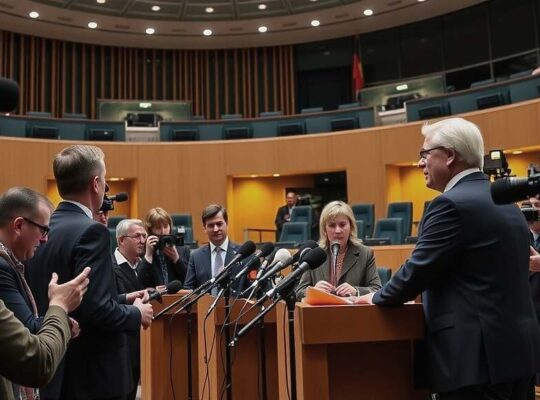The German government’s planned income tax cuts are facing internal debate, with significant implications for the nation’s fiscal policy and social equity. Matthias Miersch, parliamentary group leader of the Social Democratic Party (SPD), is advocating for a broader scope of relief, extending the benefits to higher-income earners. His proposal, voiced in an interview with “Handelsblatt”, challenges the current tax structure where even skilled workers find themselves subject to the top tax bracket.
Miersch’s suggestion, reportedly aligned with the Christian Democratic Union (CDU), aims to shift the threshold for the top tax rate to a higher income level. While the coalition agreement prioritized relief for lower and middle-income households, expanding the scope to include higher earners potentially complicates the financing of the broader tax cuts.
The proposal isn’t without potential consequences. Miersch explicitly acknowledged a possible need to increase the top tax rate-currently at 42 percent-to offset the revenue loss from the broadened tax cuts. This represents a delicate balancing act, risking accusations of undermining the coalition’s stated commitment to easing the tax burden on working families.
Adding further complexity, Miersch also raised the possibility of increasing inheritance taxes. He emphasized that a review of inheritance tax policy is unavoidable following an upcoming ruling by the Federal Constitutional Court, linking the discussion to concerns about growing wealth inequality. This sentiment echoes recent criticisms leveled by CDU parliamentary group leader Jens Spahn, who has highlighted the increasing disparity in wealth distribution within Germany.
Miersch’s statements underscore a deeper ideological struggle within the governing coalition concerning the role of taxation and redistribution. While the initial focus was on targeted relief for lower earners, the debate now centers on the broader implications for fairness and the potential impact on state revenue. Critics argue that broadening the tax cuts risks exacerbating existing inequalities, while proponents maintain it could stimulate economic growth and incentivize higher earners to contribute more to the economy. The coming months are expected to witness intense negotiations between the SPD and CDU as they attempt to reconcile these competing priorities and forge a sustainable path forward for German fiscal policy.












